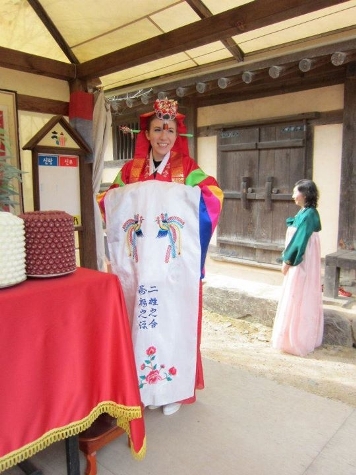 I spent my summer interning with Yale Professor Nihal deLanerolle, who also teaches Neuroscience courses at Wesleyan. After taking his class, “Functional Anatomy of the Brain,” I became interested in his research involving temporal lobe epilepsy and worked in his lab this past summer at the neurosurgery department of the Yale University School of Medicine. I worked with a rodent population to localize and measure the affects of cellular damage from temporal lobe epilepsy. In particular I learned about staining and subsequent microscopic examination techniques that can be performed on hippocampal sections to analyze the processes involved in inhibiting the physiologic effects of epilepsy.
I spent my summer interning with Yale Professor Nihal deLanerolle, who also teaches Neuroscience courses at Wesleyan. After taking his class, “Functional Anatomy of the Brain,” I became interested in his research involving temporal lobe epilepsy and worked in his lab this past summer at the neurosurgery department of the Yale University School of Medicine. I worked with a rodent population to localize and measure the affects of cellular damage from temporal lobe epilepsy. In particular I learned about staining and subsequent microscopic examination techniques that can be performed on hippocampal sections to analyze the processes involved in inhibiting the physiologic effects of epilepsy.
About 40 million people have epilepsy, and medical or surgical treatment is only effective in 45%. The pathology is not fully understood, but a history of febrile seizures in early childhood is common in temporal lobe epilepsy. There seems to be neuronal loss in the hippocampus and reorganization of neural circuits. Hopefully, elucidating certain molecular pathways involved with temporal lobe epilepsy will give us a handle on future treatments.
Subletting an apartment on Yale’s campus in downtown New Haven, I had a change of scenery from my hometown of Lincoln, MA. During my 8 week stay, I explored the city, met new people, and trained for the winter swim season. Overall, life in New Haven and my work at Yale was a great experience. It showed me the dedication of the Neuroscientists in the lab, and reinforced my belief that I made the right decision in choosing the Neuroscience and Behavior major at Wesleyan.
 I am thrilled to be Wesleyan’s new Muslim Chaplain; I have already begun to fall in love with the campus community. I believe that we are all created as brothers and sisters, and my doors are open to all and not just the Muslim community. I personally feel enriched by seeing our campus community happy, successful, and at peace with their lives. My specialties are: American Islam, Spiritual Counseling, Campus Ministry, and Interfaith Public Relations. Please feel free to email me at Azeb@Wesleyan.edu. I welcome and look forward to meeting students, faculty, and staff in my office or on campus.
I am thrilled to be Wesleyan’s new Muslim Chaplain; I have already begun to fall in love with the campus community. I believe that we are all created as brothers and sisters, and my doors are open to all and not just the Muslim community. I personally feel enriched by seeing our campus community happy, successful, and at peace with their lives. My specialties are: American Islam, Spiritual Counseling, Campus Ministry, and Interfaith Public Relations. Please feel free to email me at Azeb@Wesleyan.edu. I welcome and look forward to meeting students, faculty, and staff in my office or on campus. 
































